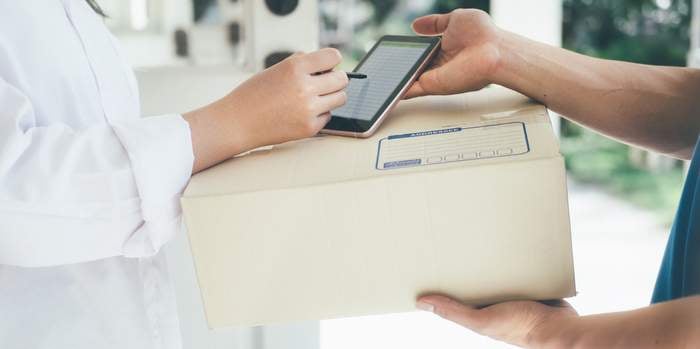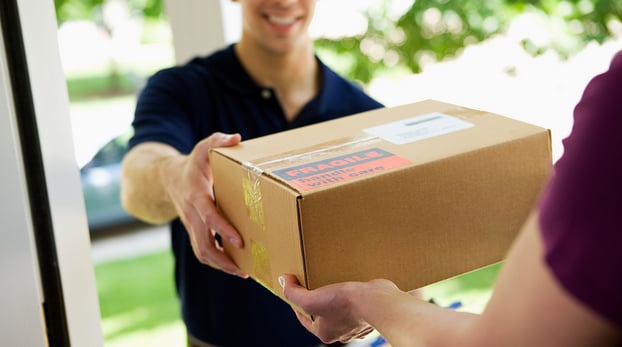
Contributed by Alex Koral, Regulatory General Counsel, Sovos ShipCompliant
Just in time for the holiday, New York state craft enthusiasts will be giving thanks this year to their state legislators for passing a law that expands the availability of direct-to-consumer (DtC) shipping of spirits and cider. As of November 18, consumers in New York will be able to buy and receive shipments from distilleries and cideries across the country, greatly expanding the number of brands they have access to.
New York, along with most other states plus D.C., already allowed for the DtC shipping of wine, but the law change now makes the Empire State the ninth state, along with D.C., to extend DtC shipping permissions to spirits products.
How to ship spirits in New York
In order to ship to New York consumers, distillers will need to abide by the specific laws set out by the state, including:
- That only properly licensed parties ship spirits to New York consumers. All New York craft distilleries will be able to ship under their existing licenses, but out-of-state distilleries will need to first receive a license issued by the State Liquor Authority. Further, only out-of-state distilleries that are of an equivalent size to New York craft distilleries (roughly under 75,000-gallon annual production) will be eligible for the license.
- That shippers take affirmative steps to prevent sales and shipments going to minors. This includes using age gates on their websites and only using authorized carriers that will check IDs at the time of delivery.
- That shippers only ship spirits they personally produce.
- That shippers ship no more than 36 9-liter cases of spirits per consumer per year.
- That shippers collect and remit all New York sales and excise taxes for their shipments as if the sales occurred within the state.
- That shippers properly label all packages to indicate they contain alcoholic beverages and require an adult’s signature upon delivery.
While this list may seem a little daunting to distilleries just entering the DtC shipping channel, these rules largely follow in the footsteps of the well-established model that has governed DtC shipping of wine in New York for nearly two decades.
New York DtC spirits & reciprocity rule
There is, however, a further restriction in New York’s law that will throw a little cold water on the prospective market. This is the reciprocity rule that New York maintains on DtC shipping, which says that New York will only issue shipping licenses to distilleries who operate in states that themselves will license New York distilleries to ship to their residents.
While this reciprocity rule is a carry-over from the state’s DtC wine shipping laws, it will have an outsized impact on New York consumers, as they will only be able to receive spirits shipments from distilleries that are in one of the other states open for DtC shipping of spirits. Since wine shipping is almost universally available, this restriction is essentially moot for wineries, which is perhaps why it has gone unchallenged for so long.
However, New York is alone in maintaining these reciprocity rules, which raises questions about both their fairness and their legality. Notably, the Oregon Liquor Control Commission decided to not enforce its own reciprocity rule for DtC beer shippers after being sued by a Washington brewer. Whether New York will face a similar challenge remains to be seen.
Nevertheless, the prospect of DtC shipping of spirits in New York is exciting, bringing welcome opportunity to an industry that has been struggling to find much good news in recent years. New York is a huge new market that will nearly double the number of Americans who can receive DtC shipments of spirits. While DtC shipping is not a model that will work for all distilleries, gaining access to that many new potential consumers is a boon.
The addition of New York to the map of states that allow DtC spirits shipping will also hopefully spur more states to add similar permissions—especially if distillers in those states want to remove the reciprocity barrier and be able to ship to New York consumers. The next big state to look at would be California, which has kept up a COVID-related rule authorizing “temporary” DtC shipping for only in-state distilleries (which is constitutionally dubious). If New York can act as a model for California, that will add momentum to the DtC spirits train.
What about DtC beer in New York?
In all the discussion of how positive New York’s rule change is, one word has been conspicuously absent: beer. Indeed, DtC shipping of beer is just about as limited as DtC shipping of spirits — (currently, about 12 states plus D.C. allow for DtC shipping of beer.

And New York’s new law does not extend shipping permissions for beer or other malt beverages, which is unfortunate because it’s not like DtC beer shipping is any less popular in the eyes of consumers than DtC spirits shipping.
Whether the state will act to further expand DtC shipping for beer products in the coming years is hard to predict, but New York brewers may very well look to their distillery neighbors for inspiration soon.
As the beverage alcohol industry struggles with new and age-old challenges, the potential of greater DtC shipping permissions provides welcome relief. While no single channel is a panacea for all producers, DtC shipping does offer new and exciting opportunities for growth and can allow consumers to access the products that they previously could only hear about from friends.
DtC spirits shipping is win-win
While it is easy to focus on the potential economic benefits to distilleries that additional DtC shipping availability brings, the real winners are consumers, who will now have much greater access to the national distilled spirits market.
While there are more distilleries operating in the U.S. today than ever before, producing tens of thousands of new and exciting beverages, most consumers cannot get their hands on these products. Restrictive state laws that require alcohol be only sold through a local distributor, along with consolidation within distributors, have created a bottleneck in the market that prevents many brands, particularly the craft producers, from entering most markets.
With DtC shipping options, however, even the smallest of producers can connect with and sell to fans across the country—as long as they abide by the laws of the destination state. Indeed, consumers increasingly recognize the benefits of DtC shipping, not as a replacement for their other purchases, but to supplement what their local distributors cannot or won’t handle.
As the latest Direct-to-Consumer Spirits Shipping Report produced by Sovos ShipCompliant in conjunction with the American Craft Spirits Association reveals, 85% of craft consumers (and 65% of all legal drinking age Americans) think state laws need to be updated to meet this demand. New York’s new laws, therefore, mark a bold step forward for consumers and distillers alike.



Leave a Reply
You must be logged in to post a comment.